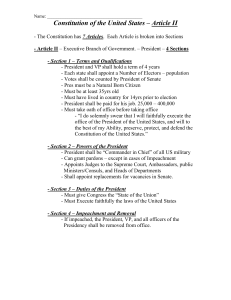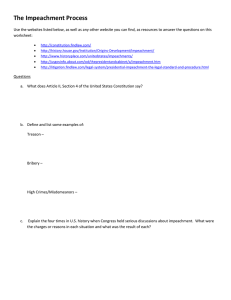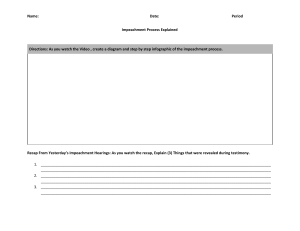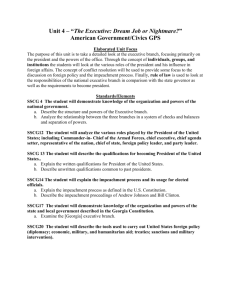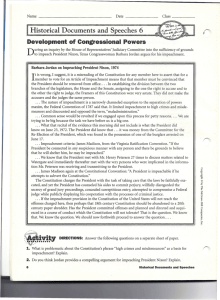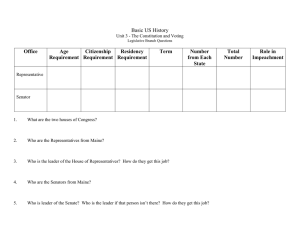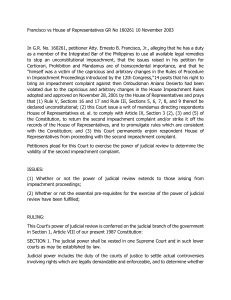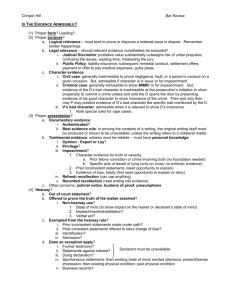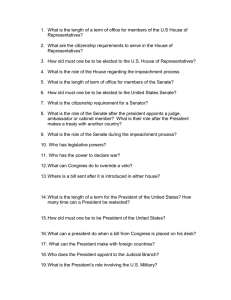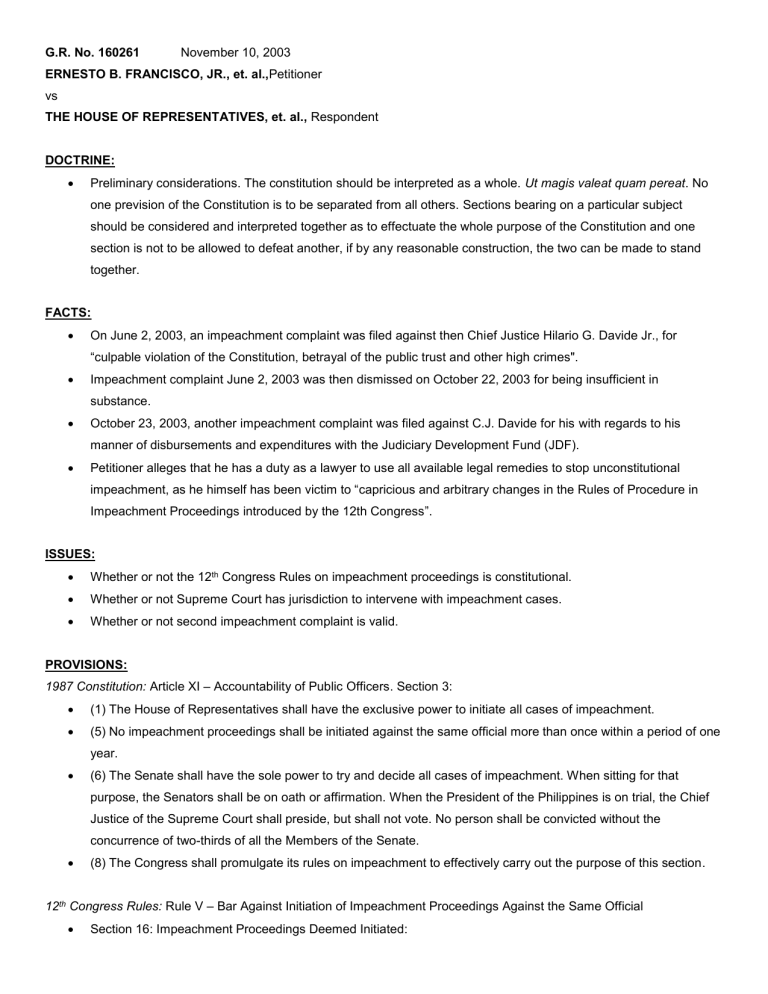
G.R. No. 160261 November 10, 2003 ERNESTO B. FRANCISCO, JR., et. al.,Petitioner vs THE HOUSE OF REPRESENTATIVES, et. al., Respondent DOCTRINE: Preliminary considerations. The constitution should be interpreted as a whole. Ut magis valeat quam pereat. No one prevision of the Constitution is to be separated from all others. Sections bearing on a particular subject should be considered and interpreted together as to effectuate the whole purpose of the Constitution and one section is not to be allowed to defeat another, if by any reasonable construction, the two can be made to stand together. FACTS: On June 2, 2003, an impeachment complaint was filed against then Chief Justice Hilario G. Davide Jr., for “culpable violation of the Constitution, betrayal of the public trust and other high crimes". Impeachment complaint June 2, 2003 was then dismissed on October 22, 2003 for being insufficient in substance. October 23, 2003, another impeachment complaint was filed against C.J. Davide for his with regards to his manner of disbursements and expenditures with the Judiciary Development Fund (JDF). Petitioner alleges that he has a duty as a lawyer to use all available legal remedies to stop unconstitutional impeachment, as he himself has been victim to “capricious and arbitrary changes in the Rules of Procedure in Impeachment Proceedings introduced by the 12th Congress”. ISSUES: Whether or not the 12th Congress Rules on impeachment proceedings is constitutional. Whether or not Supreme Court has jurisdiction to intervene with impeachment cases. Whether or not second impeachment complaint is valid. PROVISIONS: 1987 Constitution: Article XI – Accountability of Public Officers. Section 3: (1) The House of Representatives shall have the exclusive power to initiate all cases of impeachment. (5) No impeachment proceedings shall be initiated against the same official more than once within a period of one year. (6) The Senate shall have the sole power to try and decide all cases of impeachment. When sitting for that purpose, the Senators shall be on oath or affirmation. When the President of the Philippines is on trial, the Chief Justice of the Supreme Court shall preside, but shall not vote. No person shall be convicted without the concurrence of two-thirds of all the Members of the Senate. (8) The Congress shall promulgate its rules on impeachment to effectively carry out the purpose of this section. 12th Congress Rules: Rule V – Bar Against Initiation of Impeachment Proceedings Against the Same Official Section 16: Impeachment Proceedings Deemed Initiated: In cases where a Member of the House files a verified complaint of impeachment or a citizen files a verified complaint that is endorsed by a Member of the House through a resolution of endorsement against an impeachable officer, impeachment proceedings against such official are deemed initiated on the day the Committee on Justice finds that the verified complaint and/or resolution against such official, as the case may be, is sufficient in substance, or on the date the House votes to overturn or affirm the finding of the said Committee that the verified complaint and/or resolution, as the case may be, is not sufficient in substance. In cases where a verified complaint or a resolution of impeachment is filed or endorsed, as the case may be, by at least one-third (1/3) of the Members of the House, impeachment proceedings are deemed initiated at the time of the filing of such verified complaint or resolution of impeachment with the Secretary General. Section 17: Bar Against Initiation Of Impeachment Proceedings: Within a period of one (1) year from the date impeachment proceedings are deemed initiated as provided in Section 16 hereof, no impeachment proceedings, as such, can be initiated against the same official. HELD: No. It is basic that all rules must not contravene the Constitution which is the fundamental law. The provisions of Sections 16 and 17 of Rule V of the House Impeachment Rules contravenes with Section 3 (5) of Article XI as they give the term "initiate" a meaning different from "filing." Yes. The Constitution cannot be any clearer. What it granted to SC is not a mere power which it can decline to exercise. Precisely to deter this disinclination, the Constitution imposed it as a duty of SC to strike down any act of a branch or instrumentality of government or any of its officials done with grave abuse of discretion amounting to lack or excess of jurisdiction. Rightly or wrongly, the Constitution has elongated the checking powers of the SC against the other branches of government despite their more democratic character, the President and the legislators being elected by the people. No. It violates the constitutional prohibition against the initiation of impeachment proceedings against the same impeachable officer within a one-year period. DISPOSITION: WHEREFORE, Sections 16 and 17 of Rule V of the Rules of Procedure in Impeachment Proceedings which were approved by the House of Representatives are unconstitutional. Consequently, the second impeachment complaint against Chief Justice Hilario G. Davide, Jr. on October 23, 2003 is barred under paragraph 5, section 3 of Article XI of the Constitution.
